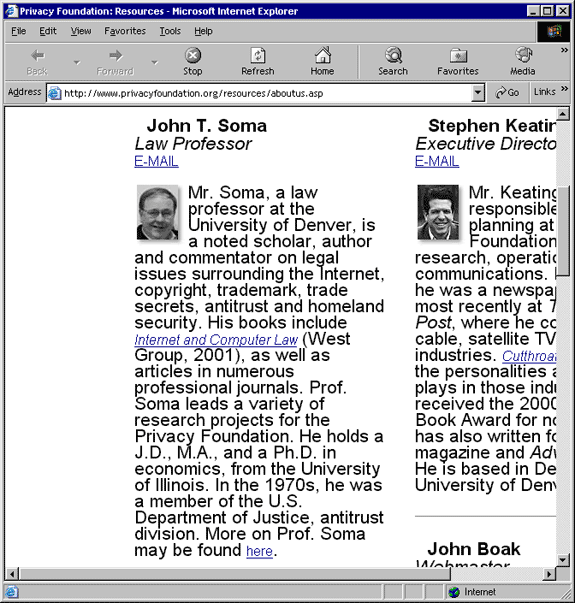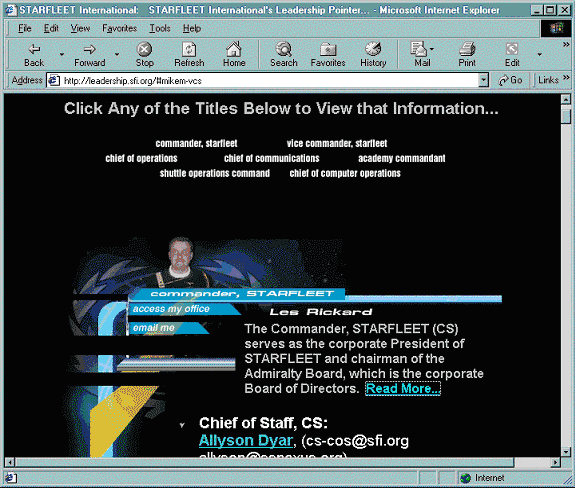| |
When evaluating the authorship of information you find on the Internet, you are considering the credibility of the person who wrote the information. Ask yourself:
- Do I recognize the author's name? More-credible sites have information written by people who are recognized as experts in their fields and who regularly publish material in print and online media.
- If I don't recognize the author's name, did I find the site by linking from another reputable site? Highly regarded sites are more likely to review the credibility of sites they link to.
- Does the site contain biographical information that suggests that the author is qualified to write on the topic? Information about the author's current position, credentials, and previously published material can help you determine his or her level of expertise.
 |
|
This author's biographical information provides evidence that she is qualified to write on topics in the area of technology as it affects the arts, education, business, and the workplace.
http://www.privacyfoundation.org/resources/aboutus.asp#pd

|
|
|
|
|
 |
While this biographical statement about the president of STARFLEET, The International Star Trek Fan Association, Inc., may suggest the author's qualifications to write on topics such as Star Trek and fan clubs, it does not provide evidence that he would be an expert on topics such as astronomy or space flight.
http://leadership.sfi.org/#mikem-vcs

|
- Can I find references to the author's credentials or other writings by using a search engine? Since people may inflate their credentials and qualifications in biographical information, be sure to check the accuracy of such information.
|
|
|

|



